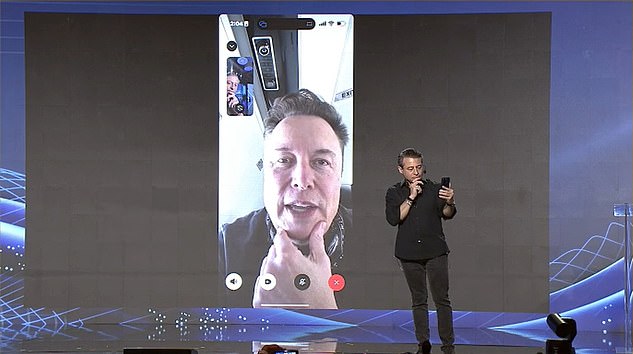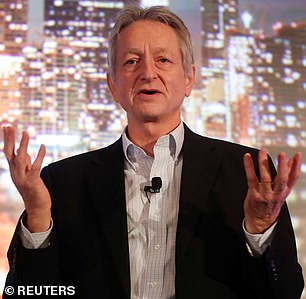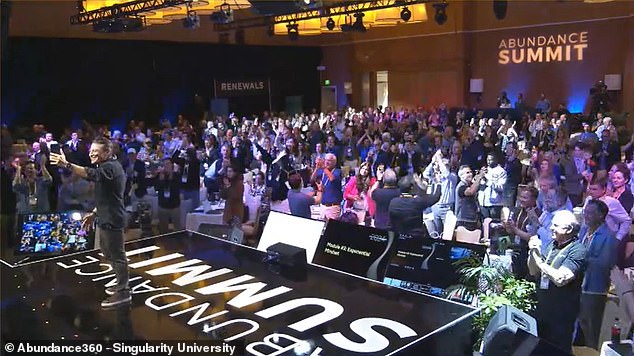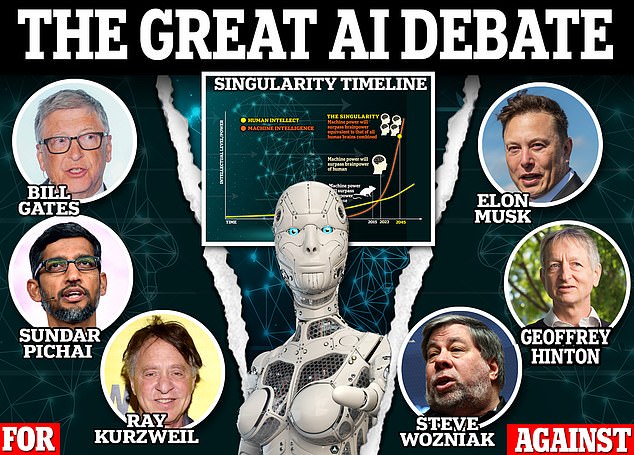AI doomsayer Elon Musk appears to have had a change of heart on the technology, saying the benefits of advancing the technology ultimately outweigh the drawbacks.
Musk spoke publicly for the first time at an artificial intelligence summit on Tuesday, just under a week after the billionaire fired Don Lemon.
The maverick tech mogul – who previously called AI “the most destructive force in history” – argued there was still “a chance it could end humanity”. But his projections were less gloomy than usual.
“I probably agree with Geof Hinton that it’s about 10 or 20 percent,” Musk told summit attendees, name-checking Geoffrey Hinton, Google’s “godfather of AI.” .
“But I think we are heading toward abundance,” Musk said, “as the most likely outcome.”
“I think the likely positive scenario outweighs the negative scenario,” he said.
The apparent easing of Musk’s fears about AI comes as he launches his own artificial intelligence program intended to compete with ChatGPT maker OpenAI: a “sarcastic” AI nicknamed Grok that is now in beta on Musk’s new Twitter brand, X.

Elon Musk (center, above) spoke at an AI summit, Abundance360, on Tuesday, in conversation with the group’s co-founder Peter Diamandis (right). Musk told attendees that ‘the likely positive scenario’ for AI ‘outweighs the negative scenario’
Hinton, 75, a British-Canadian AI pioneer who sensationally quit his job at Google last May over his own fears and regrets about AI, also spoke at from this week’s summit.
The event, Abundance360 by Singularity University, was created by futurist and X Prize founder Peter Diamandis, who shared Musk’s passion for the private space race, launching various start-ups dedicated to micro-satellites, space tourism and even to lunar rovers.
Diamandis interviewed Musk for Tuesday’s live event via a sometimes imperfect Starlink-supported X.com video live stream while Musk sat on a plane bound for Los Angeles.


Geoffrey Hinton, 75 – a British-Canadian AI pioneer who warned that “creepy” chatbots like the popular ChatGPT could soon be smarter than humans – also spoke at this week’s Abundance360 summit.
Dubbed “The Great AI Debate,” this year’s version of Diamandis’ event spanned four days in Palos Verdes, California. Speakers included Ray Kurzweil, Google futurist and coiner of the term “the singularity,” and Michael Milken, 1980s “junk bond” financier pardoned by Trump.
Former Google CEO Eric Schmidt, who last year said AI poses an “existential risk” to humanity “defined as a very large number of people being injured or killed,” also attended the summit .
“It’s called ‘the singularity’ for a reason,” Musk joked, referencing Kurzweil’s theory that a future moment of exponential technological progress will forever merge humanity and machines into a brilliant new phase of evolution.
“With the advent of artificial superintelligence,” Musk continued, “it’s actually very difficult to predict what’s going to happen next.”
But he added: “It will definitely happen – and it will happen quickly. So I really think we just want to steer it in as positive a direction as possible.


X Prize founder Peter Diamandis (stage left), galvanizing space technology, interviewed Musk for Tuesday’s live event via a sometimes imperfect livestream supported by Starlink, X.com, as Musk spoke while sitting on a plane to Los Angeles.


AI ‘godfather’ Geoffrey Hinton (centre right) threw a grenade into the raging debate over the dangers of AI technology last May, after sensationally quitting his job at Google . On Tuesday, Musk said he agreed with Hinton, while projecting a more optimistic outlook on AI.
Musk has consistently drawn on the realm of science fiction in his search for metaphors to better explain his vision of the promises and potential pitfalls of highly advanced artificial general intelligence (AGI) and other, more specific forms of AI. .
“I think we’ll get a similar result to the Ian Banks ‘Culture’ books,” Musk said from his airplane seat, calling the series of ten cultural novels by the late Scottish novelist Banks “the best vision of a semi- the utopian future of AI.
Banks’ cultural novels are set in a Milky Way galaxy, approximately 9,000 years after humanity and other human-like species teamed up with AI to produce a “post-scarcity” economy requiring little legislation or enforcement.
Banks once described the utopian vision of his books as “spatial socialism.”
Musk then cited the killer robot HAL from Arthur C. Clarke’s “2001: A Space Odyssey” as an example of how and why AI could become a threat to humanity.
The “fundamental premise” of 2001, as Musk explained at the summit, was that “things went wrong when they forced the AI to lie.”
“You kind of cultivate an AGI,” Musk said.
“It’s almost like raising a child, but a super awesome child with God-like intelligence – and how you raise the child is important, you know?”
Consistent with his previous comments on the issue, Musk argued that the safest AI for humanity is one that is “cultivated” to remain “maximally truth-seeking and curious.”
“The best way to keep AI safe is simply to develop the AI, in terms of the basic model and fine-tuning, to be truly honest – for example, don’t force it to lie, even if the truth is unpleasant,” Musk said. said.
The billionaire, who purchased social media site Twitter in October 2022, later implemented a plugin for his site, now called X, and his own AI chatbot in beta, Grok.
Grok, Musk said to a wave of applause from the audience, will be “as truthful as possible” even if what he says is not “politically correct.”
Grok,’a humble AI assistant,’ is only available to X Premium+ subscribers.

